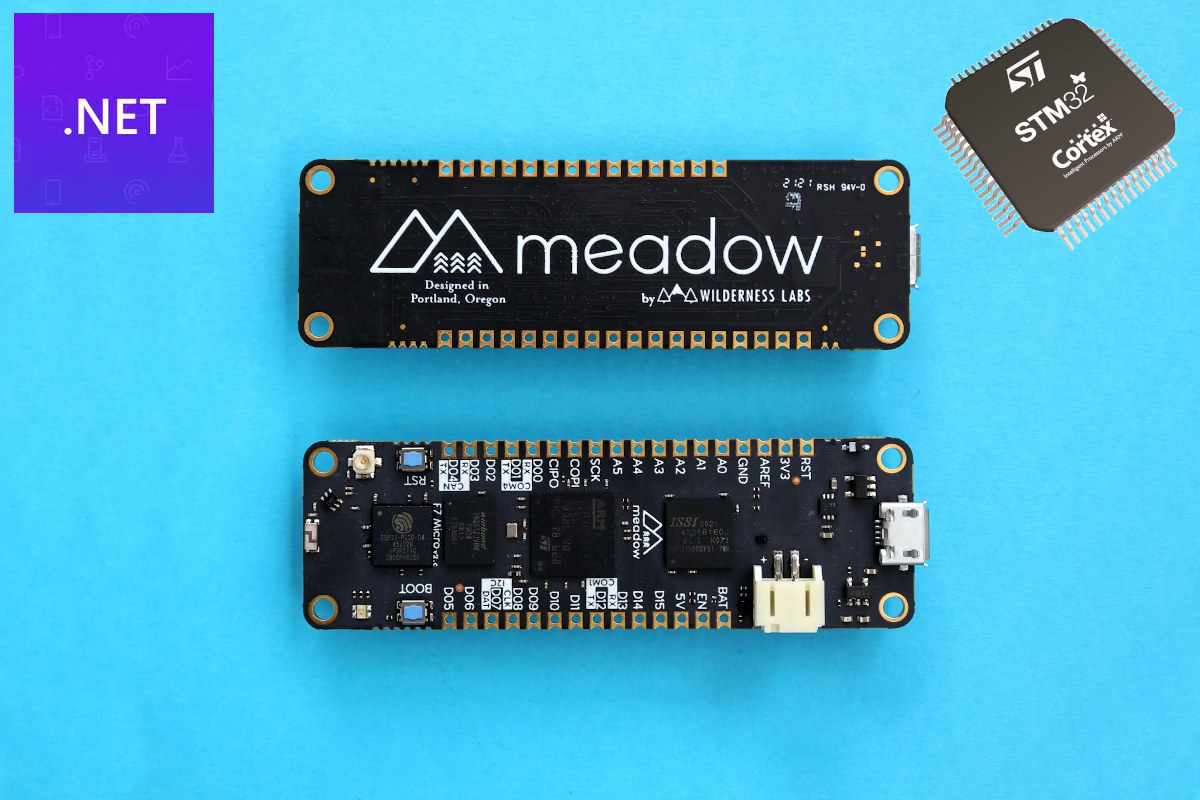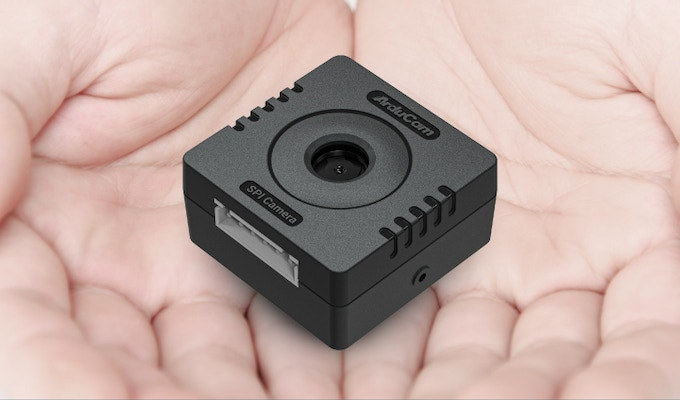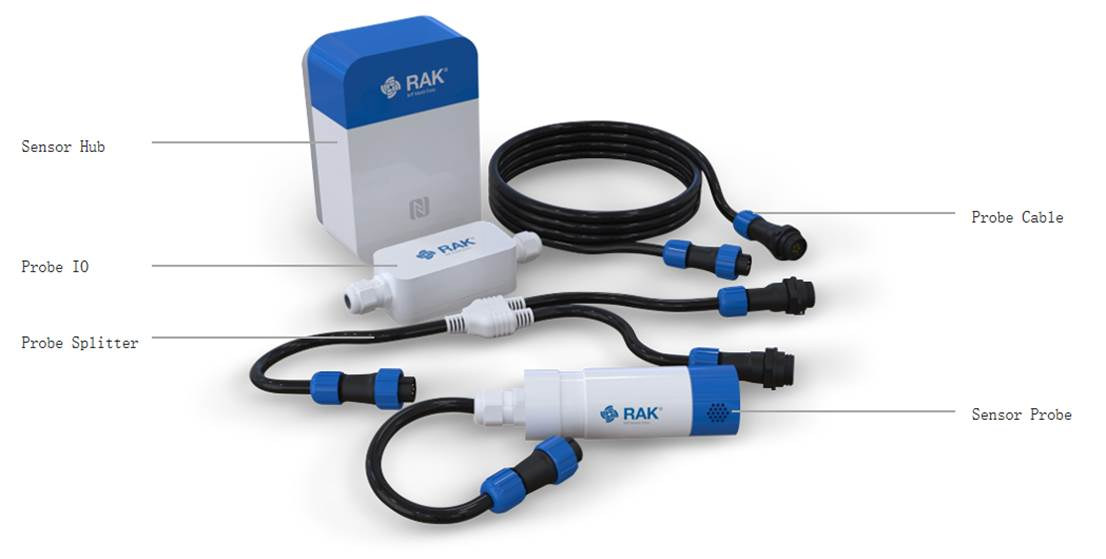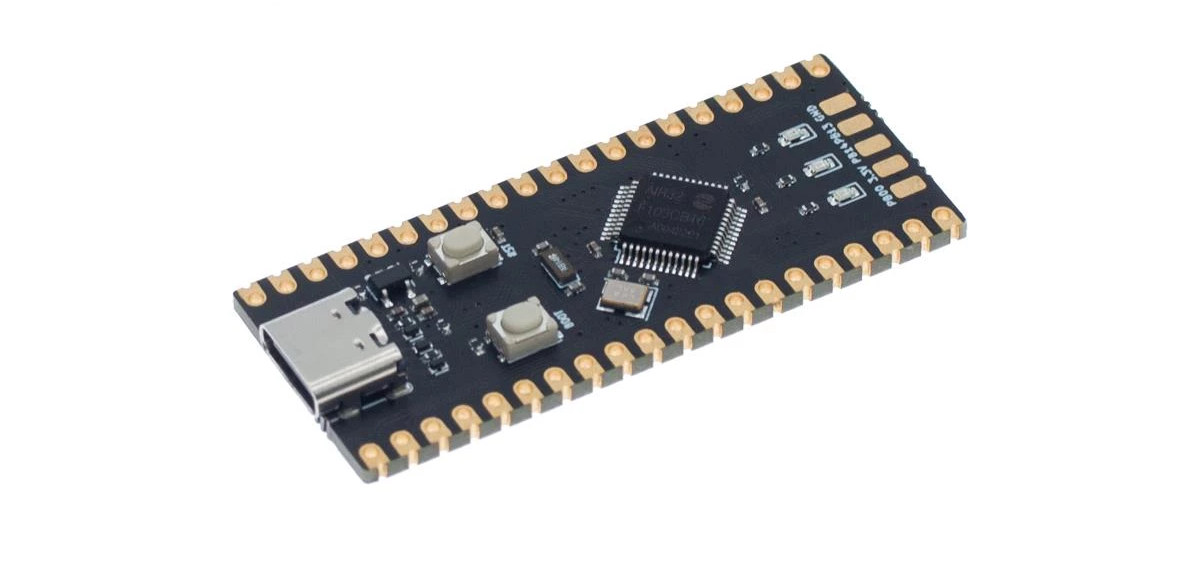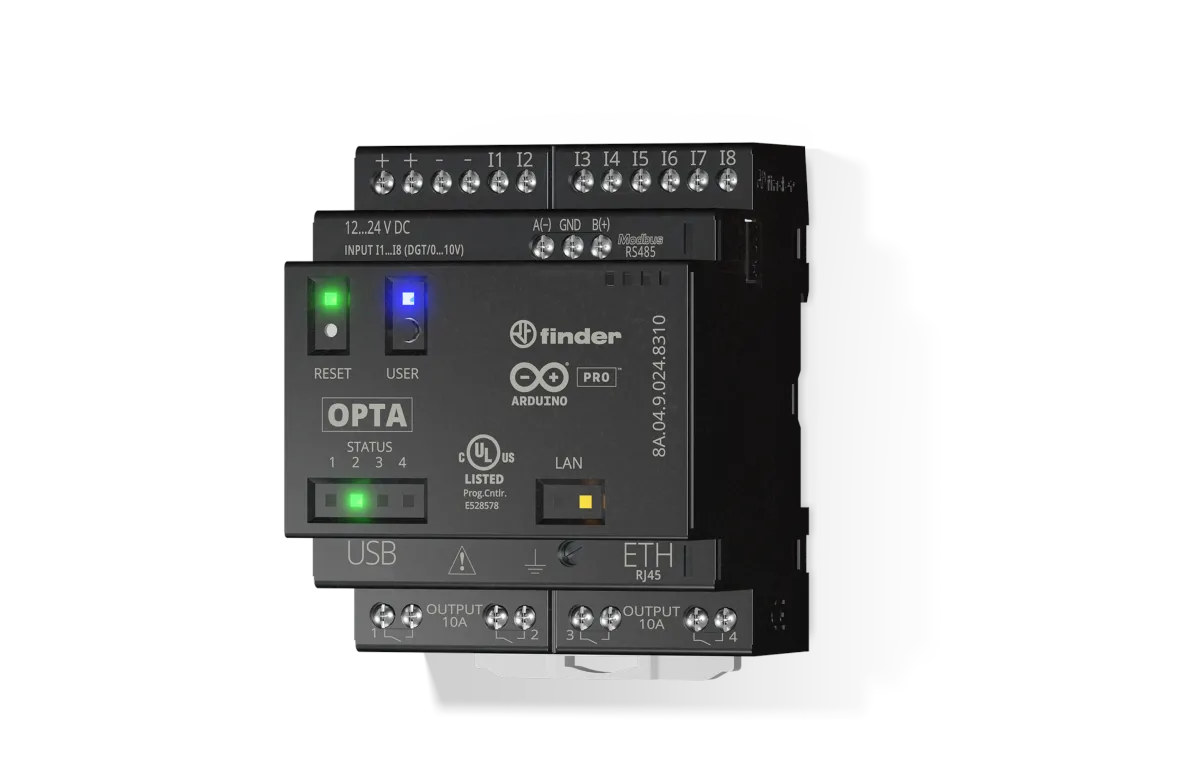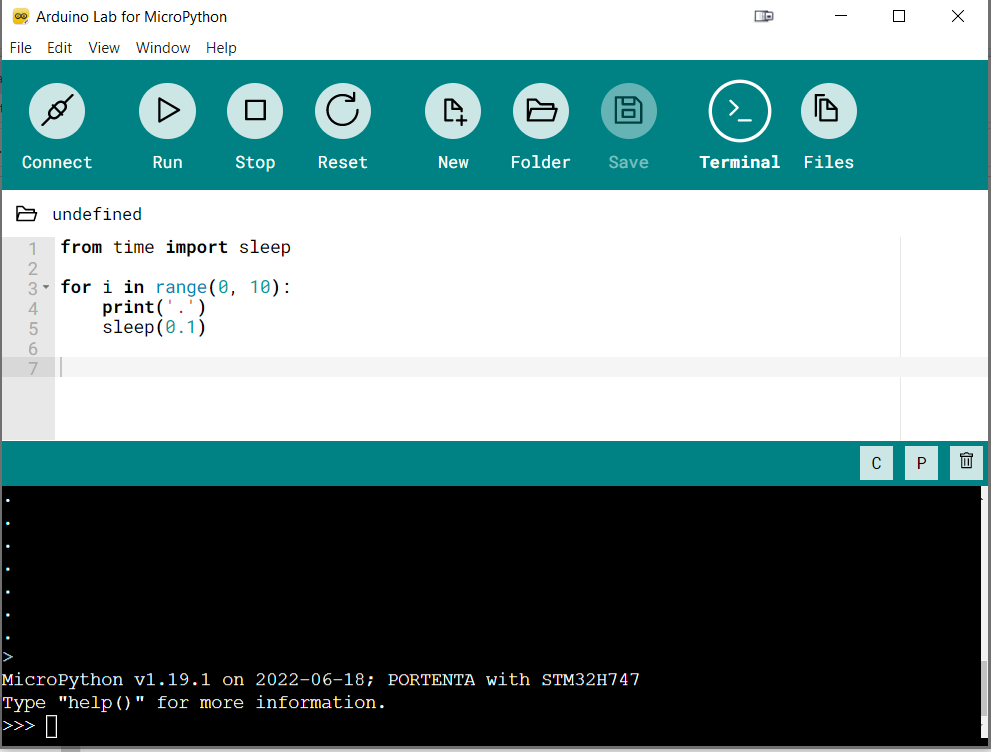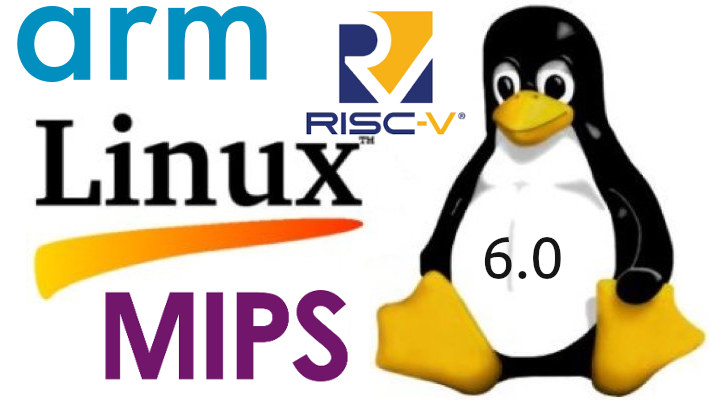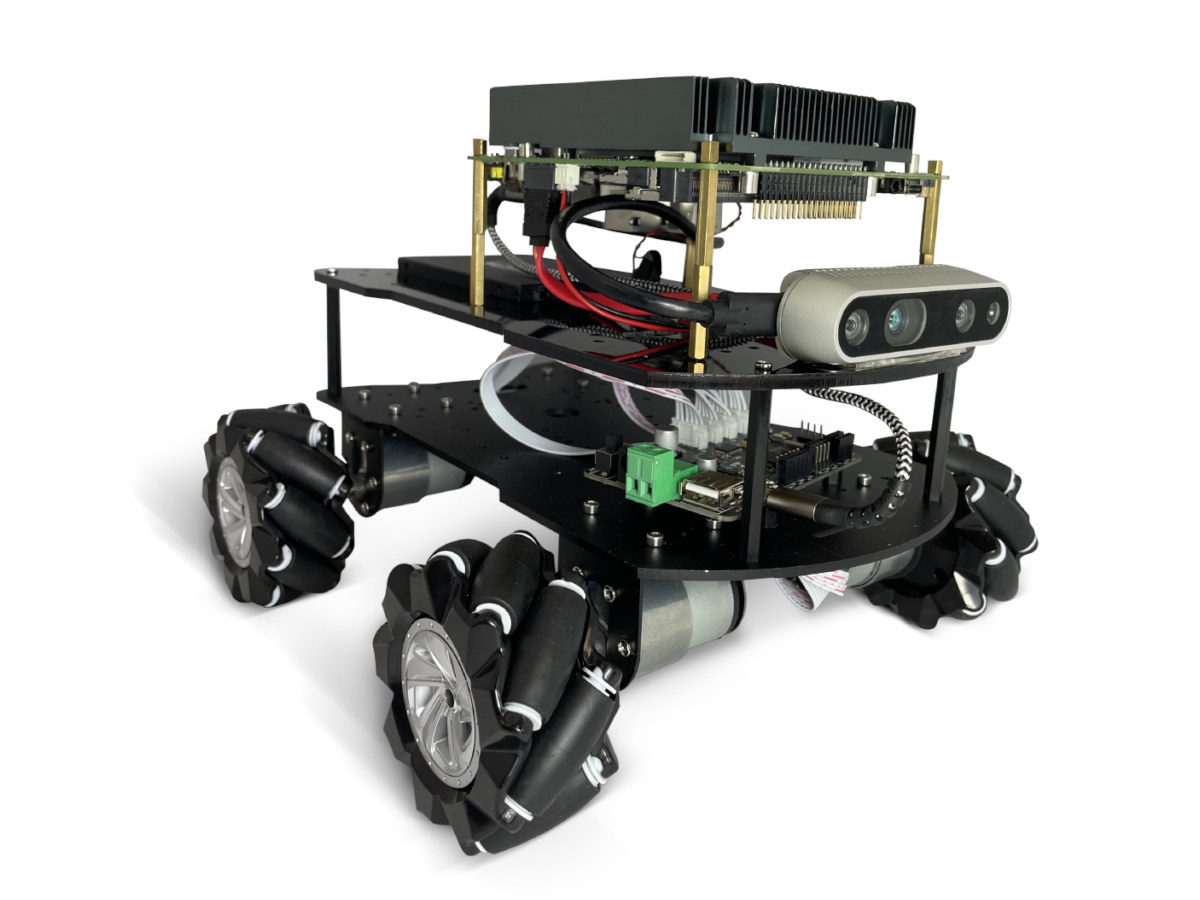Wilderness Labs Meadow F7v2 Feather is an STM32F7 Arm Cortex-M7 development board following the Adafruit Feather form factor and programmable with C# through a lightweight implementation of the .NET framework. We had previously seen the .NET Framework running on Android and Linux thanks to Xamarin’s Mono, but I don’t think I had ever a microcontroller-class board supporting the .NET framework and C# programming. But that’s exactly what the Meadow F7v2 Feather does. Meadow F7v2 Feather specifications: MCU – STMicro STM32F7 Arm Cortex-M7 microcontroller @ 216 MHz with 2D graphics and JPEG accelerators Memory – 32MB RAM Storage – 64MB flash Connectivity – 2.4 GHz WiFi and BLE (ESP32) with onboard and external u.FL antennas USB – 1x Micro USB port for power and programming Expansion with through and castellated holes with up to 25x GPIO, 12x PWM, 6x analog inputs, 2x DAC, I2C, I2S input/output, SPI, UART, CAN Bus Misc […]
ArduCam Mega – A 3MP or 5MP SPI camera for microcontrollers (Crowdfunding)
ArduCam Mega is a 3MP or 5MP camera specifically designed for microcontrollers with an SPI interface, and the SDK currently supports Arduino UNO and Mega2560 boards, ESP32/ESP8266 boards, Raspberry Pi Pico and other boards based on RP2040 MCU, BBC Micro:bit V2, as well as STM32 and MSP430 platform. Both cameras share many of the same specifications including their size, but the 3MP model is a fixed-focus camera, while the 5MP variant supports autofocus. Potential applications include assets monitoring, wildfire monitoring, remote meter reading, TinyML applications, and so on. ArduCam Mega specifications: Camera Type 3MP with fixed focus 5MP with auto-focus from 8cm to infinity Optical size – 1/4-inch Shutter type – Rolling Focal ratio 3MP – F2.8 5MP – F2.0 Still Resolutions 320×240, 640×480, 1280×720 x 1600 x1200x 1920 x 1080 3MP – 2048 x 1536 5MP – 2592×1944 Output formats – RGB, YUV, or JPEG Wake-up time 3MP – […]
RAK2560 WisNode LoRaWAN & BLE Sensor Hub ships with a choice of sensor modules
RAKwireless RAK2560 WisNode Sensor Hub is a modular sensor gateway based on the RAK4630 WisDuo Stamp module with Nordic Semi nRF52840 Bluetooth 5.0 LE MCU and Semtech SX1262 LoRa/LoRaWAN transceiver and equipped with two sensor probe ports to connect a range of sensors. It ships with various sensors from a temperature and humidity sensor to a water level sensor, and is designed for outdoor operation with an IP66 design, waterproof probe connectors, and the ability to support a solar panel as the power source. RAK2560 WisNode Sensor Hub specifications: Core module – RAK4630 WisDuo Stamp Module with LoRa/LoRaWAN and BLE 5.0 connectivity through nRF52840 MCU and SX1262 radio chip Wireless Connectivity BLE – Bluetooth LE 5.0 with Long Range and High Speed (2 Mbps) support LoRaWAN – Full LoRaWAN band support, high-efficiency embedded LoRa antenna 860~930 MHz Cellular IoT – Optional RAK5860 NB-IoT module NFC tag for power on and […]
Air32F103 is a clone of STM32F103 clocked at up to 216 MHz
Air32F103 is yet another clone of the STM32F103 microcontroller that can be faster if needed with a clock of up to 216 MHz instead of 72 MHz for the original STMicro STM32 Arm Cortex-M3 microcontroller. The first SKU of the family is the Air32F103CBT6 whose peripherals and hardware design are compatible with equivalent STM32F103CBT6 parts and offered with 32KB RAM and 128KB flash. There’s also a Bluepill-like development board, but with a different pinout, made by LuatOS. Documentation for the board and microcontroller can be found in a Wiki including the MCU datasheet that indicates models with 256KB flash and 64KB SRAM (Air32F103CCT6) and 96KB SRAM (Air32F103RPT6). Since the wiki is in Chinese only, you may want to head over a post in English on Chowdera to learn how to get started with the Keil IDE using code hosted on Gitee. The chip and board were also spotted on EEVBlog […]
Arduino Opta is a micro PLC for industrial IoT applications
Arduino has recently announced the Opta micro PLC with industrial IoT capabilities adding yet another solution to the Arduino Pro family. Arduino used to focus on the hobbyist crowd, but with the launch of the Arduino Pro family in 2020 starting with the Portenta H7 board, the company switched its main focus to the more profitable enterprise market. Since then they’ve launched several other boards designed in-house, and last year started collaborating with the introduction of the Arduino WisGate Edge LoRaWAN gateways based on RAKwireless hardware. The Arduino Opta is another one of those collaborations as it was designed together with Finder, who calls their devices PLR (Programmable Logic Relays). Arduino Opta key features and specifications: MCU – STMicroelectronics STM32H747XI microcontroller with 1x Arm Cortex-M7 core up to 480 MHz, 1x Arm Cortex-M4 core up to 240 MHz, 2MB flash, 1MB SRAM (as found in all Portenta H7 boards, and […]
Arduino Lab for MicroPython – An experimental cross-platform MicroPython IDE for Arduino boards
Arduino boards have traditionally been programmed with C-like language in the Arduino IDE, but with the Arduino Lab for MicroPython, Arduino added MicroPython to several official Arduino boards. In the words of the Arduino Team, “not an official product yet, an experimental tool”, but I would not be surprised if it becomes an official IDE eventually as the company collaborated with Damien George, the creator of MicroPython, to port the official the virtual machine to a number of Arduino products, and Murilo Polese to develop the Arduino Lab for MicroPython cross-platform IDE for MicroPython. The IDE looks familiar… Oh yes, I see it now, it’s basically the Arduino IDE, but for MicroPython… 😉 and many of the same features including supporting connection with a board, code upload, file transfer, plus a Python-specific interactive REPL shell. Arduino Lab for MicroPython features so far: MicroPython’s Read Eval Print Loop (REPL) Enter […]
Linux 6.0 release – Main changes, Arm, RISC-V, and MIPS architectures
Linux 6.0 has just been released by Linus Torvalds: So, as is hopefully clear to everybody, the major version number change is more about me running out of fingers and toes than it is about any big fundamental changes. But of course there’s a lot of various changes in 6.0 – we’ve got over 15k non-merge commits in there in total, after all, and as such 6.0 is one of the bigger releases at least in numbers of commits in a while. The shortlog of changes below is only the last week since 6.0-rc7. A little bit of everything, although the diffstat is dominated by drm (mostly amd new chip support) and networking drivers. And this obviously means that tomorrow I’ll open the merge window for 6.1. Which – unlike 6.0 – has a number of fairly core new things lined up. But for now, please do give this most […]
AAEON launches UP Xtreme i11 & UP Squared 6000 robotic development kits
AAEON’s UP Bridge the Gap community has partnered with Intel to release two robotic development kits based on either UP Xtreme i11 or UP Squared 6000 single board computers in order to simplify robotics evaluation and development. Both robotic development kits come with a four-wheeled robot prototype that can move omnidirectionally, sense and map its environment, avoid obstacles, and detect people and objects. Since those capabilities are already implemented, users can save time and money working on further customization for specific use cases. Key features and specifications: SBC UP Squared 6000 SBC – Recommended for power efficiency and extended battery power SoC – Intel Atom x6425RE Elkhart Lake processor clocked up to 1.90 GHz with Intel UHD Graphics System Memory – 8GB LPDDR4 Storage – 64GB eMMC flash, SATA port UP Xtreme i11 SBC – Recommended for higher performance SoC Intel Core i7-1185GRE clocked at up to 4.40 GHz and […]


